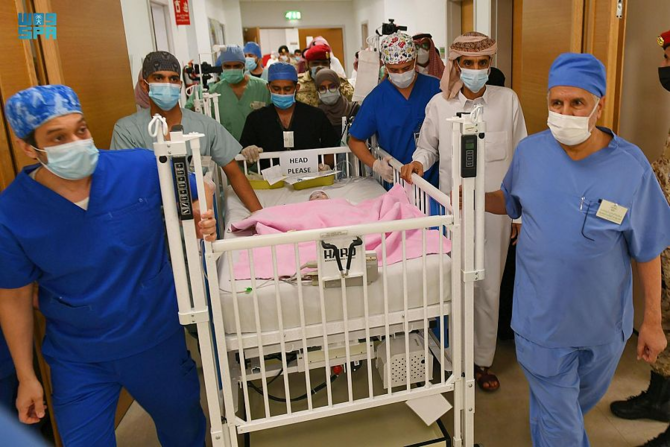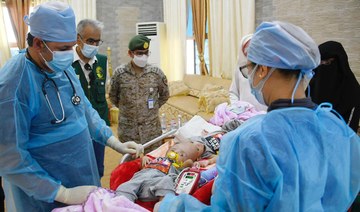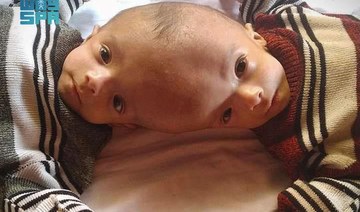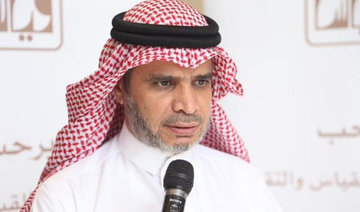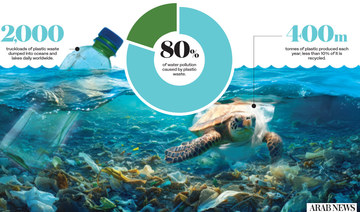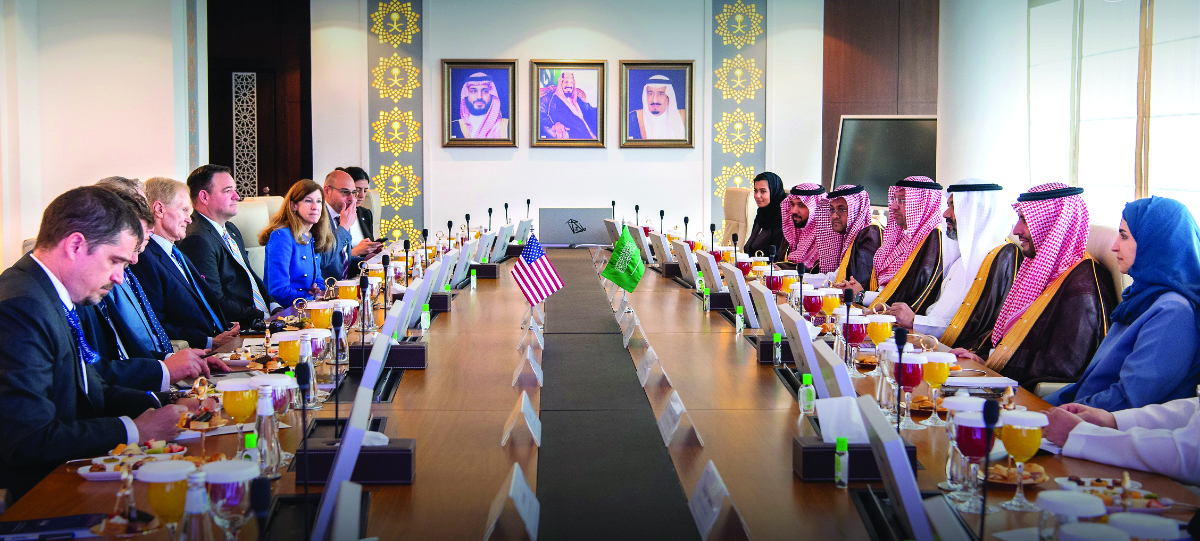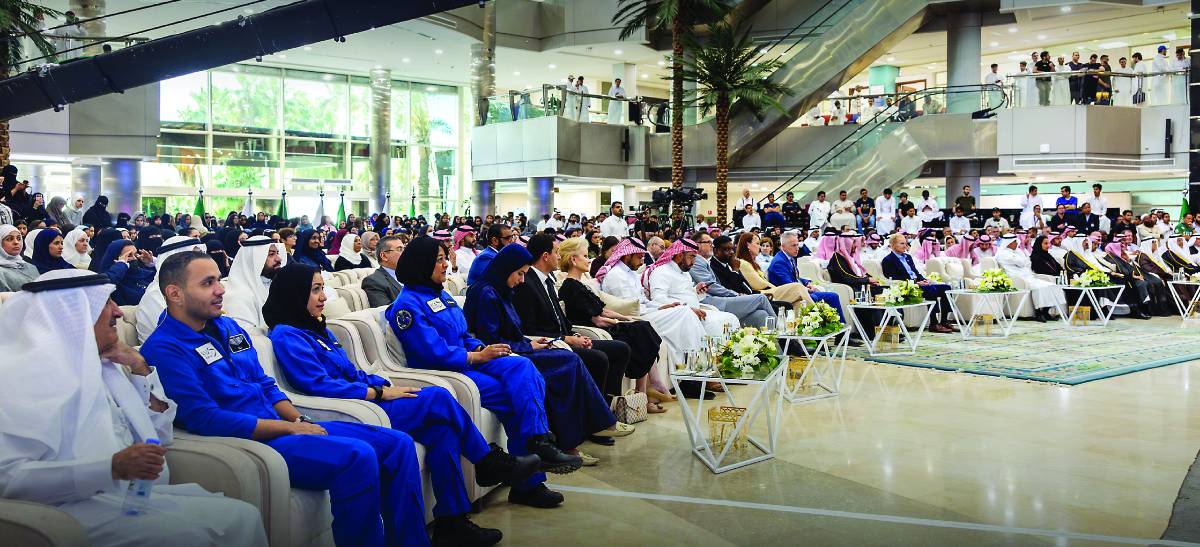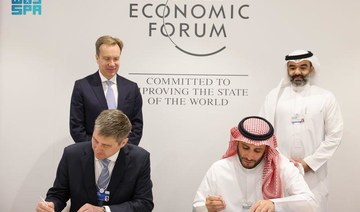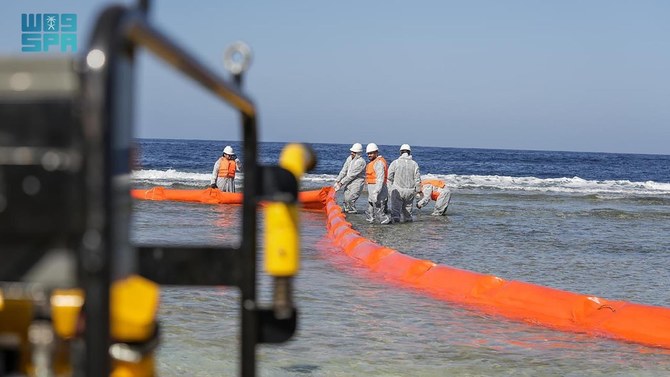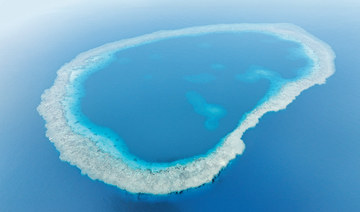RIYADH: Dr. Abdullah Al-Rabeeah, the general supervisor of the King Salman Center for Relief and Humanitarian Aid (KSrelief), announced on Thursday evening that separation surgery to remove a parasitic twin from a Yemeni girl had been successful.
The parents met their daughter, Aisha, for the first time after the operation, a moment that left both overwhelmed.
“The surgery went very well, smoothly,” Al-Rabeeah told Arab News. “The coordination between the team was excellent.”
The operation was 45 minutes shorter than the expected time, Al-Rabeeah said, having been expected to last a gruelling nine hours and eight stages, and the baby awoke soon after the end of the procedure.
Al-Rabeeah congratulated the parents and wished them a happy return to Yemen with their healthy child following her recovery.
“She is opening her eyes,” he said. “She even interacted with her mother, just at the exit of the operating room, which is a breakthrough for us.”
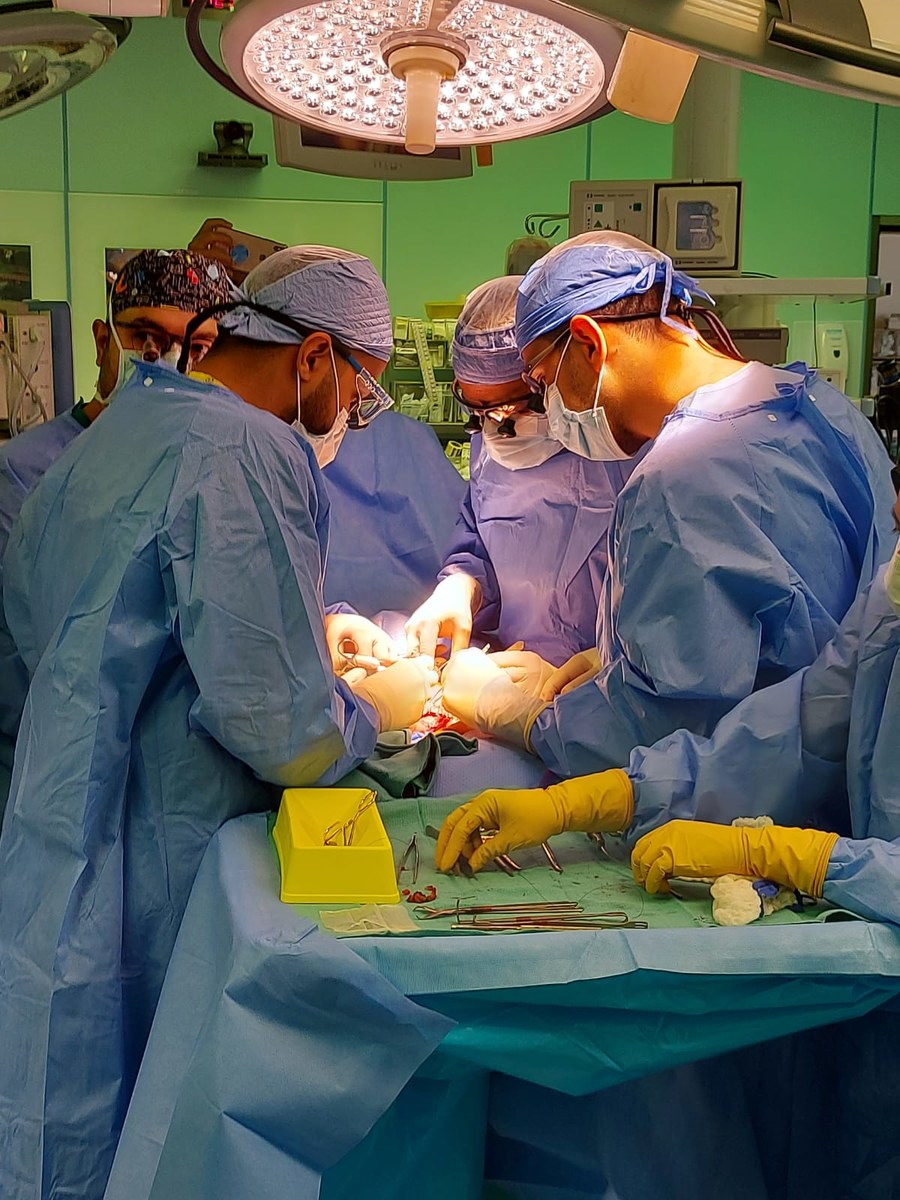
The team was also able to remove the artificial respirator and the tubes from her airway, representing another breakthrough for the Saudi medical team.
This is the 50th twins separation procedure performed in the Kingdom since the establishment of the Saudi Conjoined Twins Program in 1990.
“We are happy, we are celebrating the 50th success, and we will continue to help those who are in need,” Al-Rabeeah added.
The separation surgery began on Thursday morning at the King Abdullah Specialty Children’s Hospital in King Abdulaziz Medical City in Riyadh. A team of 25 professionals, including doctors, technicians and nurses, took part in the procedure.
The hospital’s chairman of pediatric surgery, Dr. Mohammad Al-Namshan, said that although the baby faced some challenges during the surgery she was strong enough to overcome them.
“With the experience of the team in previous cases we came over it professionally, and hopefully Aisha will have a very normal and good life in the future with minor effect from this surgery,” Al-Namshan told Arab News.
Al-Rabeeah, said prior to the surgery, the procedure had a success rate of over 80 percent.
“There were challenges indeed. There is also a need for a plastic surgery intervention to cover the raw area, however, the experience of the medical team over three decades will overcome these challenges.”

He explained parasitic twins were a specific type of conjoined twins; Aisha is fully developed but was born with an extended pelvis area and an extra pair of lower extremities.
“I hope that Aisha remains strong and God provides her with strength and health,” Aisha’s mother Fatimah Aqeel told Arab News. “We thank King Salman, the Crown Prince Mohammad bin Salman and Dr. Al-Rabeeah and his team for their efforts.”
Her father Ahmad Mohimoud said: “We have no fears, Dr. Al-Rabeeah reassured us that it is not a life-threatening procedure. We were happy to arrive in the Kingdom, and we are optimistic about this surgery, and our happiness will be fulfilled once Aisha leaves the operation room safely.”
Aisha’s parents followed the procedure through a live stream from the hospital’s conference hall. They also received news on their daughter’s situation throughout the operation.
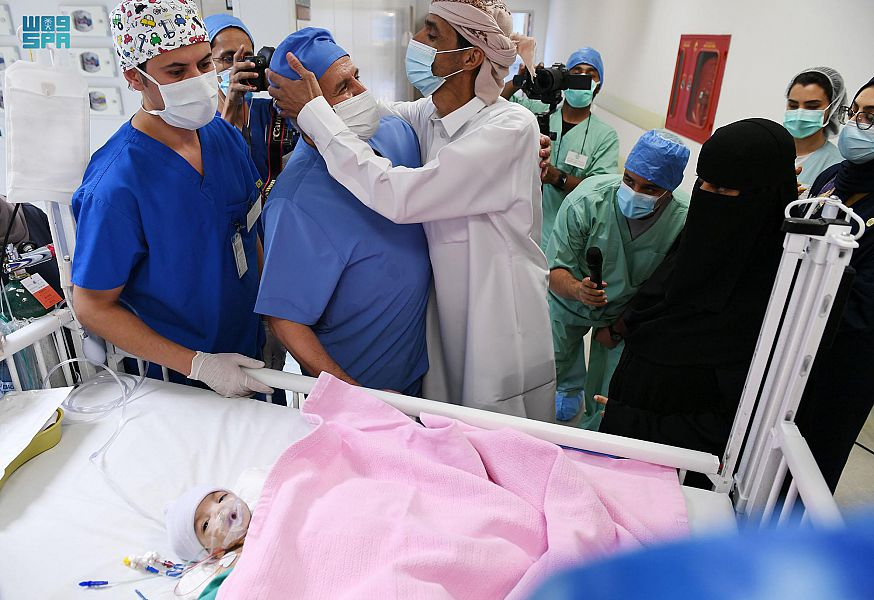
Al-Rabeeah said that each case is unique and examined separately.
“After the operation, Aisha’s situation will be monitored for a few days, then we will start the rehabilitation process. We expect it will take eight to 10 weeks,” he said.






